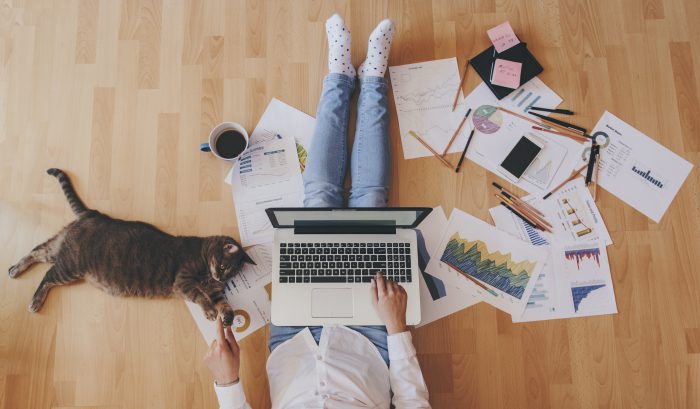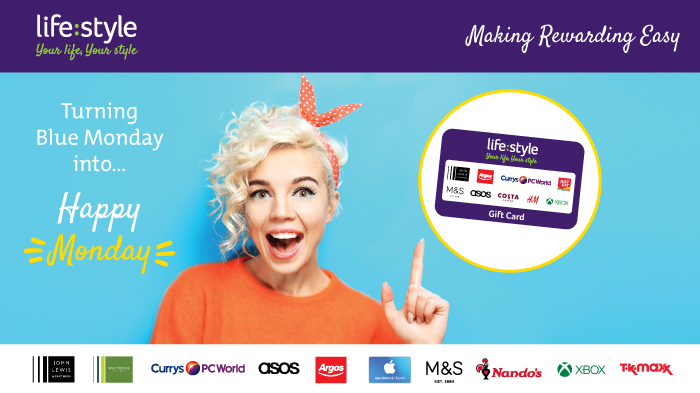Blue Monday: The most depressing day of the year?
 It is doubtful that Mondays are anyone’s favourite day of the week, but is there a Monday that trumps all others? According to pop culture theories, every year, the third Monday of January is known as “Blue Monday” the most depressing day of the year.
It is doubtful that Mondays are anyone’s favourite day of the week, but is there a Monday that trumps all others? According to pop culture theories, every year, the third Monday of January is known as “Blue Monday” the most depressing day of the year.
Wait.
Do we really need to acknowledge this mysterious accolade?
And is it really the most depressing day of the year? Is there possibly a formula which can calculate the depressing quotient of a day? No, there is not. However, holiday blues are real. Post-Christmas blues are real.
The time of the year from December to January is like an Olympic limbo with an array of mind-boggling changes ranging from weather conditions, festive activities, new year resolutions to increased debt levels, low motivation, loneliness, and a whole new year’s work ahead of us.
Even those who love holidays can feel the blues during the busiest days of holiday time, whether it is a Monday or Thursday, it does not really matter. Depression does not wait for Blue Monday. It could hit you at any time of the year. Still, winters pose a bigger risk for mental health struggles given that people suffer from Seasonal Affective Disorders (SAD), and it is a well-established fact that the weather affects our mood significantly. Additionally, financial worries and social pressures of meeting and engaging with toxic relationships that you rather avoid throughout the year can add extra stress on your mental wellbeing.
Particularly for people who are already struggling to cope with their mental health conditions will find these days particularly daunting and debilitating. According to a survey conducted by the National Alliance on Mental Illness (NAMI), 64% of people with mental health issues reported that their health deteriorates during the holidays.
Knowing is the first step toward healing. Blue Monday is just another day, but this time of the year depressive symptoms can last longer. They can cause us uncomfortable and painful confrontations, reflections, loneliness, stress, and anxiety.
What causes the blues?
These holiday blues if not taken care of, can create a significant dent in our mental health and it could take days to months to come out of this overwhelming fishnet of stressors. There are several reasons for poor mental health during the holidays and of course 2020 has taken this to a whole other level. Here are the potential causes that make us feel blue around holiday season:
- Exhaustion
- Financial pressure
- Not being able to go home for the holidays
- Missing your family and friends
- Nostalgia for holidays of the past times
- Poor social support
- Isolation and loneliness
- The strain of dealing with toxic family & relationships
- Unrealistic expectations of making everyone happy
- Anxiety about the future
- Lack of control over usual routine
What does experiencing the blues look like?
Because the holidays mark an upcoming new year, people also tend to reflect on their past year’s experiences, and this is often filled with feelings of regret, failure, and shortcomings. We might begin to ponder about the goals that we had wished to achieve and brood if we failed to meet those expectations.
New year resolutions and peer pressure can also lead to stress, anxiety, and sadness. Pictures of jolly faces flooding the internet and flashy festive banners all around the streets can create unrealistic goals for people. It can pressure people into believing they need to be feeling a particular way, the guilt of not feeling like a jolly Christmas elf can in turn act as another stressor on our mental health.
Here is a summary of what experiencing blues may look and feel like:
- Lack of concentration
- Low motivation
- Irritability
- Exhaustion and tiredness
- Feelings of loneliness
- Lack of interest in usual activities
- Sleeping much more or much less than normal
- Withdrawing from friends and family
- Overindulging in substances like alcohol, other drugs
- Unhealthy diet
- Unable to make decisions
What happens next?
Unfortunately, people may start using harmful coping mechanisms. Excessive smoking, drinking, binge eating, and a poor sleep cycle are some of the most common coping mechanisms undertaken by people to handle their depression, stress, and anxiety.
However, we must remember that the depression around Blue Monday is not permanent and is considered less severe compared to chronic depression. The symptoms are broader and are likely to vanish after the post-holiday season ends. Suppose you feel that you are experiencing these symptoms even after this time is over, in that case, you must seek help from a mental health professional.
What does one do if the holiday cheer does not seem to appear? Sometimes the blues hit us out of nowhere and we do not have the support to deal with these unpleasant thoughts and feelings. Luckily, there are some fantastic mental health resources available at the click of the mouse! What better way to address your mental health than swapping your Lifestyle Voucher for a consultation with a therapist from the innovative online counselling platform, Healingclouds.
Healingclouds in an online mental healthcare platform which offers the following mental health resources:
- 1 to 1 online therapy via video calling with an accredited therapist.
- Therapist-led online courses for personal growth
- Guided meditations
If those holiday blues seem to be creeping up, before they get the better of you, grab your laptop and your Lifestyle Voucher, plug in your headphones, and engage with some of the best mental health resources readily available, easily accessible, and affordable. You may be gifting others this time of the year but looking after your own mental health is the best gift you could give yourself and those who love you.
Professional therapists from Healingclouds have also offered the following tips for coping with mental health during the holidays:
- Limit your consumption of alcohol, unhealthy food, and smoking
- Make social connections and try not to isolate yourself
- If possible, exercise daily or practice yoga
- Set and communicate healthy boundaries for yourself and others
- It is important we normalise that holidays are not meant to be perfect. Remember your holiday time with fondness and remember we need a little bit of everything in moderation, even overindulgence too.
Ashley Lourens
healingclouds.com



